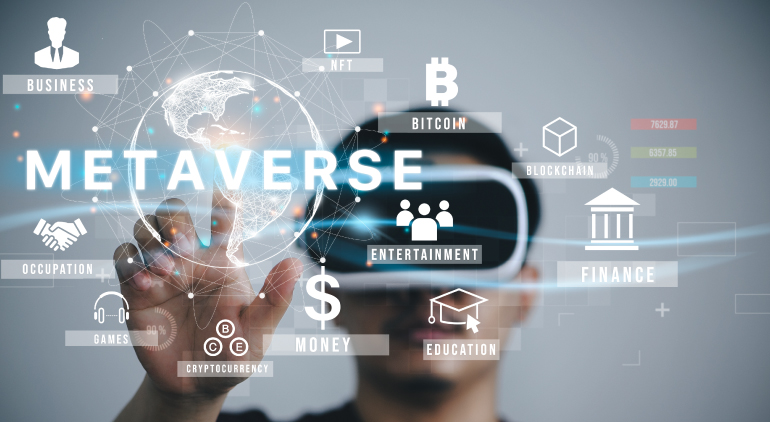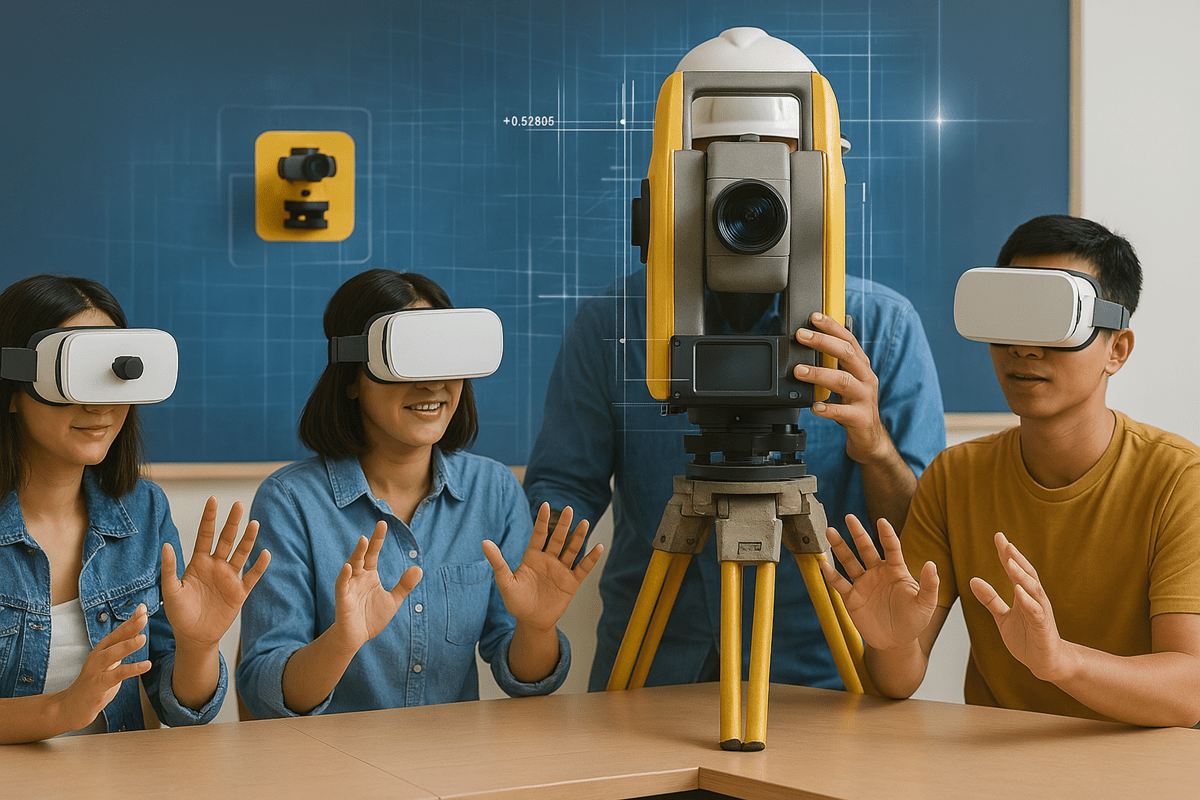How the Metaverse will Promote Immersive Learning in Higher Education

The education sector has already jumped the bandwagon and is trotting off into metaverse adoption.
- Market estimates by Globe-News Wire report the Metaverse Education market will touch USD 94.9 billion in 2030.
The metaverse education system is gaining traction among the ed enthusiasts for its ability to support Educational decentralization and democratization. This means that more people across the globe can have access to quality education.
Technology is a great leveller and is creating new opportunities and professions. Metaverse learning systems will drive a new economy backed by knowledge dissemination, and better upskilling and personalised learning to ensure that talent is appreciated.
The transition from 2D learning to 3D -360 degree learning will transform vr for higher education completely.
State of the Metaverse Market 2022
Mark Zuckerberg describes the metaverse as the closest we can get to teleporting.
- It is on Gartner’s list of the top 5 technologies to cause major disruptions in 2022.
As the hype of metaverse is rapidly growing and the global economy is set to change course, industry leaders from all sectors are trying to establish a foothold in the mirror world.
- Sensing the increasing popularity, Gartner has reported that global spending on VR/AR will touch $72.8 billion in 2024.
This is important data as these are the foundational technologies running the metaverse.
- The metaverse is projected to be an $800 billion market by 2024.
- Tech giants will not lose the opportunity to benefit from the metaverse.
The metaverse is the next iteration of the internet where interactions will happen within it instead of browsing it. The metaverse is an enormous galaxy comprising several metaverses catering to specific interests.
For example:
- Meta by Facebook is projected as a Social Networking 3 D realm.
- Edverse, the world’s most unique and immersive education metaverse, offer opportunities for the entire educational ecosystem. You can check it out at www.edverse.com.
How Metaverse is Transforming Higher Education
The metaverse education is a highly immersive learning space that ensures better engagement and deeper learning and retention. This is achieved through simulation and augmented environments that mirror the physical worlds.
Deploying its use in higher education can substantially enhance a student's learning capability, performance and skill sets.
For example, consider a vr medical training undergoing surgery training.
In a physical lab, all students would be collected in the same room to observe a cutting procedure on one cadaver. All would observe and learn. The physical lab throws up challenges like space constraints, limited resources and non-personalised learning.
Now let’s consider a VR Lab:
For instance a medical students have to study the human liver.
In a physical lab, they would gather around the teacher and listen to or watch 2D charts, diagrams or videos to understand the intricate functions of the heart.
But now, with immersive learning backed by VR, they can each enter the human liver, see it 3D -360 rotation, and watch and observe every detail.
This can be repeated till they are satisfied at no additional cost. And since every learner’s need is different, they can do it as per their requirements.
Immersive Technologies Powering the Metaverse
Virtual Reality and Augmented Reality are the prominent twin technologies alongside AI, blockchain and NFT powering the Metaverse education ecosystem.
- As per Fortune Business Insights, the VR-driven Ed-tech market will touch $13,098.2 million by 2026.
- The global NFT market value will touch $21.33 billion in 2022, growing at a CAGR of 52.1% over 2021.
VR and AR offer virtual hands-on training and put the student's need first. It makes learning interesting and relevant to match today’s needs.
Learning is live and customised to students’ learning requirements rather than being educator-led.
VR-enabled classrooms are the future of higher education in metaverse. VR will help higher education institutes expand their base, offer hands-on virtual learning and enhance students' skill sets across the world.
VR labs will also enable upskilling of professionals to study the latest methods and practices.
The metaverse classroom will offer seamless and immersive deep learning. Students are more like to develop better skills in this risk-free zone that allows them to practise and master functions with precision.
Cutting-edge technology will prepare them to take up the work challenges of 21st-century professions.
Monetary Benefits of the Education Metaverse
The Metaverse is an internet-enabled digital world that can be accessed anywhere at any time and immersive learning for higher education.
It allows networking and collaboration in real-time. Users can choose their digital avatars and even allow their avatars to represent them in the metaverse. It provides a virtual environment that can be easily accessed by one’s place. Thus reducing logistical and travelling costs.
Another notable economic burden it takes off from institutions is setting up costly labs, equipment, and auditoriums. With the metaverse, a professor can address live and virtual audiences simultaneously.
This can become a transactional intellectual property that can be made available in various formats in the metaverse. Metaverse academics can be repackaged and dished out to various audiences as per their requirements with the help of Artificial Intelligence.
Conclusion
To wrap up, there are numerous benefits to higher education metaverse. Immersive learning, better skill sets, requirement-based upskilling, more accessibility to knowledge and cost reduction are just the tip of the iceberg.
The metaverse will revolutionise the higher education segment with virtual classes and hands-on learning. It will remove the worry over scarcity of resources and promote training in hazardous procures in a risk-free zone.
.png)
.png)



